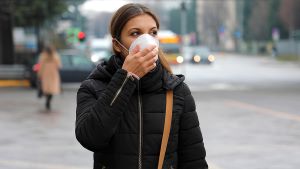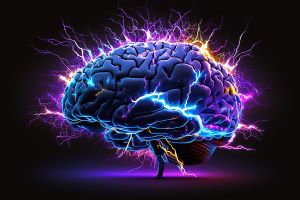January 31, 2024
by Elizabeth Pratt

People remember moments immediately after a distressing episode with more clarity than the moment preceding the distressing event.
Research investigating memory and trauma published in Cognition and Emotion could help inform the approach to treating PTSD, assist clinicians in combating memory loss in Alzheimer’s and even improve evaluation of eyewitness testimonies.
[More]
January 30, 2024
by Patricia Tomasi

A new study published in BMC Public Health looked at married women’s decisions to delay childbearing, as well as loneliness, severe psychological distress, and suicidal ideation under crisis during the pandemic. “This study intended to find out how pregnancy decisions affect the well-being of women,” study author Midori Matsushima told us. “We used the COVID-19 pandemic as a natural experiment that affected the population as a whole.”
[More]
January 2, 2024
by Patricia Tomasi

A new survey was recently released by the American Heart Association regarding health habits during the holidays. The survey found that nearly 80 per cent of people overlook their health needs during the holidays. “The survey is about the general trends and attitudes U.S. adults have about stress during the holiday season,” Dr. Glenn Levine told us. Dr. Levine is a volunteer medical expert from the American Heart Association.
[More]
December 22, 2023
by Elizabeth Pratt

Parents are feeling the pressure this holiday season.
Data from the C.S. Mott Children’s Hospital National Poll on Children’s Health at University of Michigan Health found one in five parents think their children have unrealistic expectations of the holiday, and one in four parents admit they themselves set overly idealistic expectations for the holidays.
[More]
December 21, 2023
by Elizabeth Pratt

Adults across the country are feeling festive but overwhelmed this holiday season.
A new poll by the American Psychological Association found 89% of respondents are stressed about not having enough money for the holidays, missing loved ones and family conflict.
[More]
December 19, 2023
by Patricia Tomasi

A new study published in PubMed looked at the case for screening and evidence-based intervention in pregnant Black people to detect depression, anxiety, and stress. “As part of a larger randomized clinical trial to determine whether a newly created cognitive-behavioral skills building intervention is effective in improving the mental health of pregnant people of color, we screened Black pregnant women for anxiety, depression, and stress,” study author Susan Gennaro RN, PhD, FAAN told us.
[More]
November 28, 2023
by Patricia Tomasi

A new study published in the Journal of Neurology looked at the association between peer victimization, gender diversity, mental health, and recurrent headaches in adolescents. “In this study, we wanted to try and understand if bullying and being gender diverse are associated with frequent headaches in teens,” study author Serena L. Orr told us. “Although some past studies have looked at the relationship between bullying and headaches, they have not adequately controlled for other risk factors associated with both of these, including mental health, age, and sex."
[More]
November 14, 2023
by Patricia Tomasi

A new study published in the Journal of Youth and Society looked at the influence of the neighborhood environment on stress among Black American adolescents. “My study uses this scoping review method to explore what is known about various aspects of the neighborhood environment and how these aspects contribute to stress among Black children and youth aged 10-18 years old. We were hoping to identify specific characteristics of the neighborhood environment and home in on how these characteristics have contributed to stressors among Black children and youth – with the goal of brainstorming some strategies for resolving this relationship," study author Dr. Melissa L. Villodas told us.
[More]
October 10, 2023
by Patricia Tomasi

A new study published in the Journal of Immunity looked whether there was a potential link between early life stress and the onset of mental disorders. “Individuals who suffer childhood abuse/neglect are much more likely to develop mental diseases, including depression and schizophrenia,” study author Wok-Suk Chung told us. “Additionally, stress has been shown to elicit a decrease in the number of excitatory synaptic connections in the brain and impair their functions. However, the underlying mechanism by which early life stress induces synaptic and behavioral symptoms later in life have been unclear.”
[More]
October 3, 2023
by Patricia Tomasi

A new study published in the Journal of General Internal Medicine looked at adverse childhood experiences (ACEs) and aging-associated functional impairment in a national sample of older community-dwelling adults. “In recent years, there has been growing interest and research in how stress and traumatic events that happen in childhood can impact people’s health in their early adult years, from increasing people’s risk of depression all the way to other diseases like diabetes,” study author Victoria M. Lee told us.
[More]